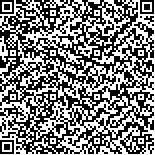| 摘要: |
|
| 关键词: |
| DOI:10.1007/s11768-010-0024-9 |
| Received:January 22, 2010Revised:January 22, 2010 |
| 基金项目: |
|
| Design of switched linear systems in the presence of actuator saturation and L-infinity disturbances |
| Liang LU,Zongli LIN,Haijun FANG |
| (Shanghai Jiao Tong University;University of Virginia;MKS Instrument) |
| Abstract: |
| This paper considers the problem of disturbance tolerance/rejection of a switched system resulting from
a family of linear systems subject to actuator saturation and L-infinity disturbances. For a given set of linear feedback
gains, a given switching scheme and a given bound on the L-infinity norm of the disturbances, conditions are established,
in terms of linear or bilinear matrix inequalities, under which a set of a certain form is invariant for a given switched linear
system in the presence of actuator saturation and L-infinity disturbances, and the closed-loop system possesses a certain
level of disturbance rejection capability. With these conditions, the design of feedback gains and switching scheme can be
formulated and solved as constrained optimization problems. Disturbance tolerance is measured by the largest bound on the
disturbances for which the trajectories starting from a given set remain bounded. Disturbance rejection is measured either
by the L-infinity norm of the system output or by the system’s ability to steer its state into and/or keep it within a small
neighborhood of the origin. In the event that all systems in the family are identical, the switched system reduces to a single
system under a switching feedback law. Simulation results show that such a single system under a switching feedback law
could have stronger disturbance tolerance/rejection capability than a single linear feedback law can. |
| Key words: Actuator saturation Disturbance rejection Disturbance tolerance L-infinity performance Set invariance Switched systems |

